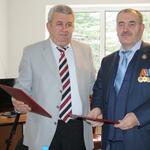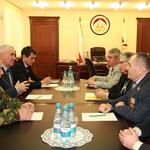The fate of the missing citizens of South Ossetia was discussed in detail in Geneva
Official communication of the South Ossetian delegation on the 23 Round of Geneva Discussions on Security and Stability in Transcaucasia
March 26-27, 2013 a regular meeting of the international discussions on security and stability in Transcaucasia was held in Geneva. It was attended by delegations of the Republic of South Ossetia, the Republic of Abkhazia, the Russian Federation, Georgia, the United States, as well as the EU, the UN and the OSCE. South Ossetian delegation was headed by Presidential Envoy for post-conflict settlement Murat Dzhioev.

